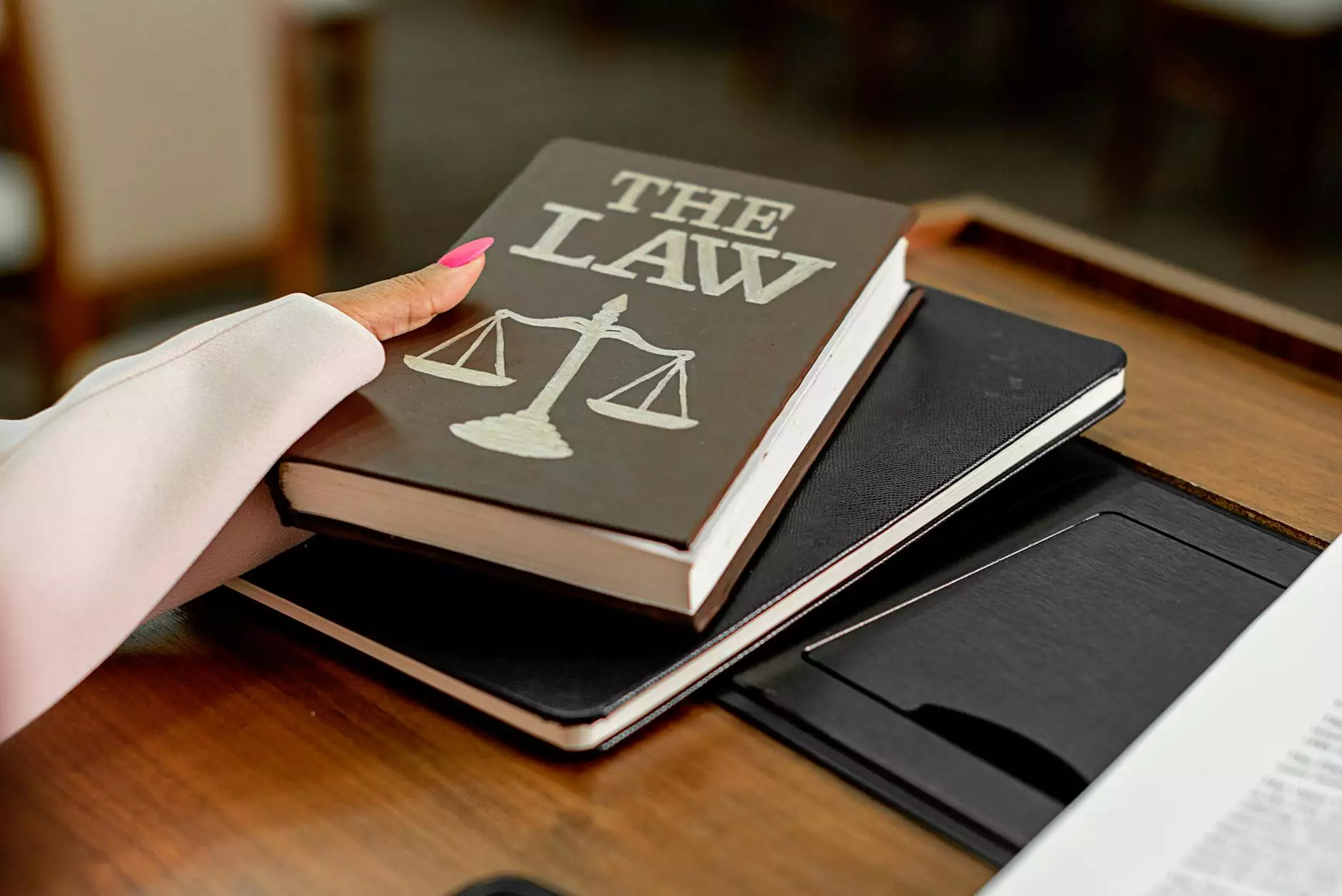Impact of Lawyers on Pharmaceutical Companies: Navigating Complex Legal Landscapes

The pharmaceutical industry is one of the most heavily regulated sectors in the world, with lawyers specialized in pharmaceutical law playing a crucial role in ensuring that companies adhere to regulations while protecting their innovations. In this comprehensive article, we will delve into the intricate relationship between lawyers and pharmaceutical companies, particularly focusing on the implications of criminal defense law and personal injury law.
The Role of Lawyers in Pharmaceutical Companies
Pharmaceutical companies often operate in a challenging legal environment that requires expert guidance to navigate. Lawyers specializing in pharmaceutical law provide invaluable services that help companies maintain compliance and protect their interests. Here are some of the key roles that these lawyers play:
- Regulatory Compliance: Ensuring that all practices meet the rigorous standards set by government authorities.
- Intellectual Property Protection: Safeguarding patents and trademarks to protect proprietary innovations.
- Litigation Support: Representing companies in legal disputes related to drug safety, efficacy, and marketing.
- Contract Negotiations: Drafting and reviewing contracts with third parties, including suppliers, distributors, and clinical trial partners.
- Risk Management: Developing strategies to minimize legal risks and navigate potential litigation.
Understanding Pharmaceutical Regulations
The pharmaceutical industry is subject to a broad range of regulations that govern everything from drug development to marketing. Some of the key regulations include:
- FDA Regulations: The Food and Drug Administration (FDA) oversees the approval and monitoring of pharmaceuticals in the United States.
- HIPAA Compliance: Ensuring the privacy of patient information during clinical trials and marketing efforts.
- GxP Guidelines: Good Practice regulations that ensure accountability and quality in pharmaceutical development.
Lawyers must stay abreast of these regulations to provide relevant and timely advice to their clients.
Criminal Defense Law in the Pharmaceutical Sector
Criminal defense law is particularly relevant in the pharmaceutical industry, where companies can face serious legal challenges, including:
- Fraud Allegations: Companies may be accused of fraudulent practices, including false advertising or misrepresentation of drug efficacy.
- Regulatory Violations: Companies can face criminal charges for non-compliance with FDA regulations and other federal laws.
- Whistleblower Cases: Employees may report unethical practices, leading to investigations and potential criminal charges against the company.
In these situations, having a knowledgeable criminal defense lawyer is paramount to protect corporate interests and mitigate damage. Legal counsel can provide crucial support in defending against allegations and navigating the complex legal landscape.
Case Study: A Pharmaceutical Company Under Investigation
To illustrate the importance of criminal defense law in the pharmaceutical sector, let’s consider a hypothetical case where a pharmaceutical company is investigated for alleged false advertising. In this scenario:
- The company launches a new drug and markets it as having superior efficacy over its competitors.
- Regulatory authorities receive complaints and initiate an investigation.
- The company engages a team of experienced criminal defense lawyers.
- Through diligent legal strategies, the lawyers are able to demonstrate compliance with marketing regulations, and the investigation is closed with no legal action taken.
This example highlights how effective legal counsel can protect a company’s reputation and financial standing.
Personal Injury Law and Pharmaceutical Companies
Pharmaceutical companies also face liabilities under personal injury law, often arising from adverse drug reactions or alleged negligence. Victims of harmful side effects may seek legal action, and the following areas are of significant importance:
- Product Liability Claims: These are brought against manufacturers for injuries caused by defective drugs.
- Negligence Claims: Patients may claim that the company was negligent in conducting adequate testing or failed to warn of potential side effects.
- Mass Tort Litigation: In cases where large groups of individuals are harmed, mass tort cases may arise.
Lawyers specializing in personal injury law play a crucial role in these cases by:
- Investigating claims and gathering evidence to support victims’ allegations.
- Negotiating settlements with pharmaceutical companies.
- Representing plaintiffs in court if cases go to trial.
Successful Defense Against Personal Injury Claims
To further understand the intersection of personal injury law and pharmaceutical companies, let’s delve into a hypothetical situation:
- A patient suffers severe side effects after taking a newly marketed drug.
- The patient files a personal injury lawsuit against the pharmaceutical company.
- The company’s legal team conducts extensive research and discovers that the patient had pre-existing conditions that significantly contributed to their health issues.
- Through expert testimony and evidence, the defense successfully argues that the company fulfilled all necessary obligations to warn consumers of potential risks.
This case exemplifies the importance of having robust legal representation in combatting personal injury claims effectively.
The Importance of Choice in Legal Representation
Choosing the right lawyer can significantly impact a pharmaceutical company’s legal outcomes. Factors to consider when selecting legal representation include:
- Experience: Look for lawyers with extensive experience in pharmaceutical law specifically.
- Track Record: Research the firm’s history of success in similar cases.
- Communication Skills: Effective lawyers should be able to communicate complex legal matters clearly and concisely.
- Strategic Thinking: The ability to devise innovative strategies is crucial in navigating legal challenges.
Conclusion: The Integral Role of Lawyers in the Pharmaceutical Industry
In conclusion, the role of lawyers in pharmaceutical companies cannot be overstated. From navigating complex regulations to defending against criminal charges and personal injury claims, their expertise is pivotal in safeguarding the interests of these companies. As we have explored, the pharmaceutical landscape is fraught with legal challenges that require skilled legal partners to mitigate risk and enhance compliance.
For pharmaceutical companies seeking to fortify their legal defenses and ensure comprehensive representation, firms like AJA Law Firm offer the necessary expertise in criminal defense and personal injury law, empowering you to navigate your legal landscape with confidence and professionalism.
lawyer pharmaceutical company








